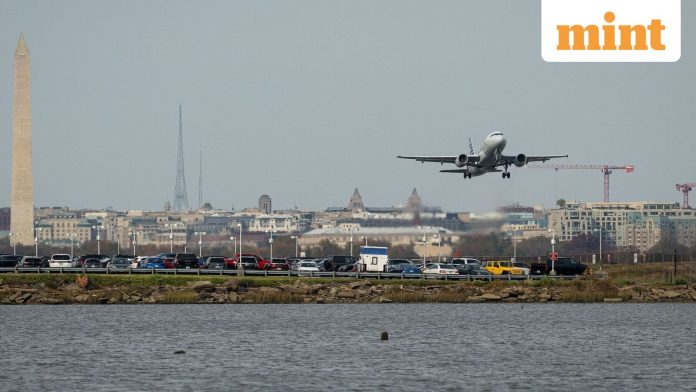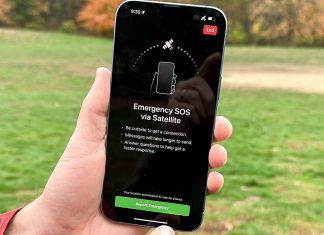US airline disruptions soared on Sunday as flight cancellations crossed 2,100, marking the highest since the federal government shutdown led to widespread operational cuts across the aviation sector.
Transportation Secretary Sean Duffy warned that air traffic across the country could “slow to a trickle” if the government shutdown extends into the Thanksgiving holiday season, when a lot of people make travel plans.
The FAA last week ordered flight cuts at 40 of the nation’s busiest airports after some air traffic controllers, who have gone unpaid for nearly a month, stopped showing up for work, the Associated Press reported.
How many flights did airlines cancel over the weekend?
The slowdown, now in its third day, is beginning to cause more widespread disruptions across 40 of the United States’ busiest airports.
Airlines reported at least 7,000 flight delays on Sunday and more than 1,500 on Saturday. On Friday, they cancelled more than 1,000 flights, according to FlightAware, a website that tracks air travel disruptions.
The FAA reductions began on Friday at 4% and plans to increase the cuts to 10% by 14 November. They are in effect from 6 am to 10 pm local time and will impact all commercial airlines.
Hartsfield-Jackson International Airport in Atlanta had the largest number of cancellations on Sunday, with over 570, followed by Newark Liberty International Airport in New Jersey, which had at least 265 cancellations.
In Georgia, weather could have led to disruptions in air travel, with the National Weather Service (NWS) office in Atlanta warning of widespread freezing conditions through Tuesday, AP reported.
Travellers recall series of cancellations
The series of delays and cancellations has led to travellers facing significant inconvenience and uncertainty. One such traveller, Kyra March, recounted that she finally arrived at Hartsfield-Jackson on Sunday after a series of postponements the day before.
“I was coming from Tampa, and that flight got delayed, delayed, delayed. Then it was canceled and then rebooked. And so I had to stay at a hotel and then came back this morning,” she told AP.
The FAA informed that the shortage of staff at Newark and LaGuardia airports in New York is leading to average departure delays of about 75 minutes.
Detroit Metropolitan Wayne County Airport in Michigan was mostly empty on Sunday morning, with minimal wait times at security checkpoints, as delays and cancellations filled the departure and arrival boards.
Will the disruptions get worse?
Sean Duffy issued a warning on Sunday, stating that US air traffic could decline significantly if the shutdown continues. He said additional flight cuts, up to 20% might be needed, particularly since the controllers receive no paycheck for a second straight pay period.
“More controllers aren’t coming to work day by day, the further they go without a paycheck,” Duffy told “Fox News Sunday,” adding that since there is a shortage of controllers at the airports, the flyers would be facing a few flights taking off and landing, along with thousands of cancellations.
“As I look two weeks out, as we get closer to Thanksgiving travel, I think what’s going to happen is you’re going to have air travel slow to a trickle as everyone wants to travel to see their families,” Duffy said, further warning that the situation will get worse until the air traffic controllers start getting paid.
The FAA has been short of air traffic controllers for years, and multiple presidential administrations have tried to convince retirement-age controllers to remain on the job.
Duffy said the shutdown has worsened the shortage situation, as it prompted some air traffic controllers to speed up their retirements. “Up to 15 or 20 a day are retiring,” Duffy said on CNN.
Pete Hegseth’s offer to resolve the shortage of controllers
Sean Duffy said Defense Secretary Pete Hegseth reached out to him with an offer to lend military air traffic controllers to deal with the shortage situation, but it’s unclear whether the staff is certified to work on civilian systems.
Duffy denied the Democrats’ claims that the flight cancellations were a political tactic, saying that they were necessary due to an increasing number of near-misses from an overtaxed system.
Airlines for America, a trade group representing US carriers, said air traffic control staffing-related delays exceeded 3,000 hours on Saturday, the highest since the shutdown began, with staffing issues accounting for 71% of the total delay time. Between 1 October to 7 November, controller shortages have disrupted travel for more than 4 million passengers on US carriers, according to Airlines for America.
These air traffic controllers have repeatedly expressed despair over the non-payment of their salaries, with some even taking on second jobs, such as driving Uber and working at restaurants to sustain their livelihood.








